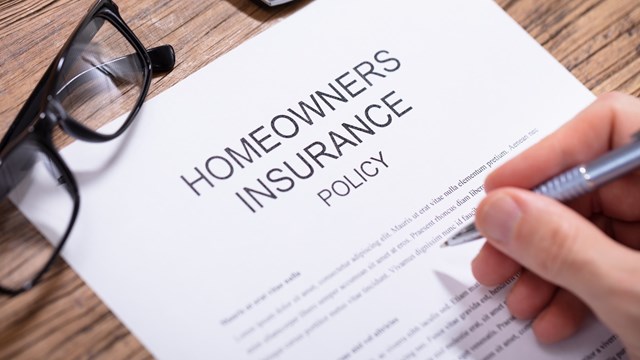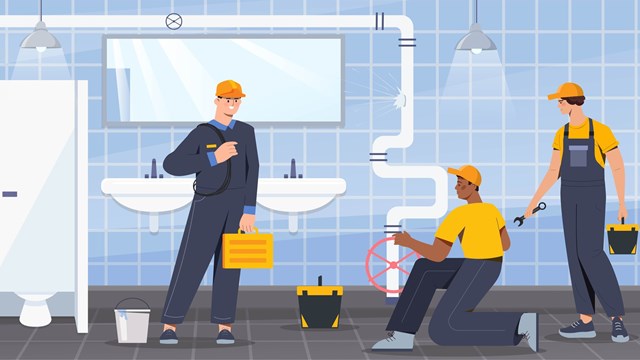If the commercial storefronts in your building have steps, or are not otherwise handicap accessible, be warned: your building may be exposed to liability under Title III of the Americans with Disabilities Act (ADA).
Disabled individuals have the right under Title III to sue businesses whose facilities do not meet the ADA’s accessibility requirements, and to recover their attorneys’ fees for doing so. In the nearly 30 years since the ADA was enacted, a cottage industry has arisen to capitalize on the attorneys’ fees provision in the statute. Some attorneys will partner with a serial plaintiff to file hundreds of so-called 'drive-by' lawsuits, wherein the plaintiff merely drives past the building or business in question for the sole purpose of spotting ADA violations, without having any serious intention of actually patronizing the business. Often times, the violations found are very minor (such as having non-levered doorknobs, or a restroom mirror mounted a few inches above the maximum allowed height) and would be inexpensive to correct. The true goal of the opportunists who file these lawsuits is not necessarily to eliminate accessibility barriers, but rather to pocket hefty payments for their fees.
Given that these cases tend to be a slam-dunk for the plaintiff, and that the defendant is on the hook for the plaintiff’s attorneys’ fees, defendants are incentivized to settle quickly. Settling usually entails correcting the violations and paying an agreed-upon amount for attorneys’ fees that can range anywhere from $10,000 to $25,000 or more. While most businesses are happy to make any modifications necessary to better serve their disabled patrons, paying a five-figure sum for legal fees is a tough pill to swallow.
Buildings in New York City are particularly vulnerable to these drive-by suits – and the number of such actions filed in New York has increased dramatically over the last several years. Because most NYC buildings pre-date the ADA’s enactment and are subject to tight space constraints, many are not in technical compliance with ADA requirements, and therefore make easy targets for profiteering lawyers.
Congress recently took action to curb frivolous ADA litigation. In February 2018, it passed H.R. 620, the ADA Education and Reform Act. The Act has two important provisions that promote the ADA’s original goal of making public accommodations accessible, but at the same time protects businesses and property owners from opportunistic litigation.
First, it requires claimants to provide written notice of ADA violations and an opportunity to cure them before filing suit. Businesses and/or property owners receiving such a notice have 60 days to respond with an action plan to address the ADA violations, and then an additional 60 days to perform the required work. This allows well-intentioned businesses and property owners a chance to make the necessary modifications without having to pay an exorbitant settlement sum for attorneys’ fees. Second, for those ADA disputes that do necessitate legal action, H.R. 620 requires federal courts to develop alternative dispute resolution programs designed to quickly identify barriers and resolve accessibility issues without the need for protracted litigation. This measure not only keeps litigation costs down for the parties, but will also help conserve judicial resources which can become strained by the sheer volume of ADA cases that are filed every year.
H.R. 620 has not been codified into law because it has yet to pass through the Senate. In the meantime, what can you do to make sure your building is protected against a Title III ADA claim? Be proactive! Retain an ADA compliance expert or a design professional well-versed in ADA compliance to identify common violations and recommend a plan of action for addressing them. Solutions can be simple and inexpensive. For example, if the store entrance in your building has steps, consider purchasing a temporary ramp and wireless doorbell. A disabled person can ring the bell for assistance, alerting employees inside to retrieve and set up the ramp. Displaying a simple plaque indicating that handicap assistance is available can also help ward off a lawsuit. Replacing round doorknobs with levers, lowering mirrors, and insulating sink pipes are other cost-effective solutions for avoiding some of the most common ADA violations found in public restrooms.
It’s also a good idea to call your building’s insurance broker and confirm that the building’s insurance policy will provide coverage in the event an ADA claim is filed. Reviewing the proprietary lease (or bylaws, in the case of a condominium) is also important, because the board may have a mechanism under its governing documents to pass liability onto commercial owners and tenants.
Taking such proactive measures will not only stave off exploitative litigation, but more importantly, will help achieve the ADA’s true purpose of helping disabled individuals gain the equal access they deserve to all of the stores, restaurants, theaters, museums and other public attractions New York City has to offer.
Rachael Ratner is a partner with the law firm of Schwartz Sladkus Reich Greenberg Atlas LLP, in Manhattan.










Leave a Comment